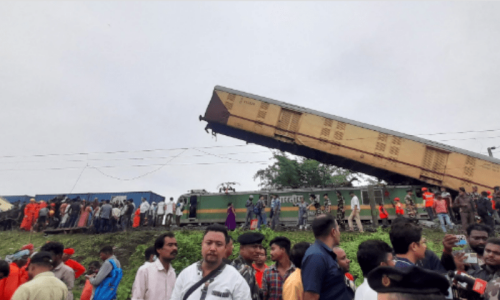KABUL: Battered taxis ply the streets, shops are open for trade, people go about their business. But despite the apparent normality of the Afghan capital, no one can forget the horrors of nearly a quarter century of war, and all want justice.
Most Afghans have spent half their lives or more in a climate of conflict: the 1979-1989 Soviet occupation, the ensuing civil war (1992-1996) and the brutal Taliban regime (1996-2001).
There is not one among them who does not have memories of atrocities. "During the civil war I saw soldiers who wanted to rape a 19-year-old girl. She wanted to keep her honour so she killed herself," said Abdul Hakim, 27, who runs an estate agency.
Under the Taliban, remembered taxi driver Mohammed Nazir, 42, "I saw a 20-year-old young man who was hung with barbed wire... I saw Talebs in the (Kabul) stadium that cut women's heads."
"During the civil war, a woman was running," said Ghulam Sakhy, 52, a former officer who is now unemployed. "I asked her, 'What is going on?'. She said, 'There is a lot of fighting and all my family was killed'.
"She had blood on her back. I asked her why. She said: 'I had my child on my back. He was shot. It's his blood'." Mohammed Yaqub, 38, joint owner of a clothes shop, said: "I heard a warlord say to his soldiers that if they seized a district, they could take everything, do everything."
War crimes were perpetrated by all factions under the Soviet occupation, the civil war and the Taliban regime, and included mass rapes, large-scale massacres, disappearances and summary executions, and the indiscriminate bombing of civilians, rights officials have said.
According to a study by the Afghan Independent Human Rights Commission released on Saturday, few people escaped such widespread atrocities unscathed. Of 4,151 people questioned for the study, "69 percent identified themselves or their immediate families as direct victims of a serious human rights violation during the 23-year period".
Many said some of these crimes lasted after the fall of the Taliban. A quarter of the respondents said at least one member of their family had been killed and nearly 400 said they themselves or their close relations had been tortured or detained.
"These are staggering statistics in comparison to any other conflict in the world," the commission said. Advocacy group the Afghanistan Justice Project (AJP) documented some of the war crimes and crimes against humanity in a report in October. -AFP












































Dear visitor, the comments section is undergoing an overhaul and will return soon.